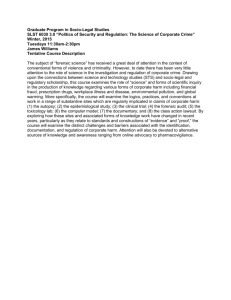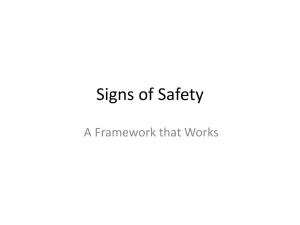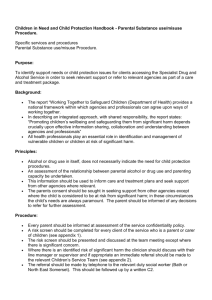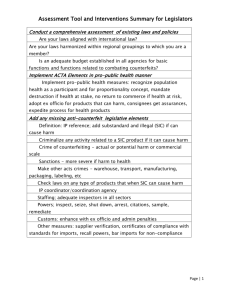Handouts
advertisement
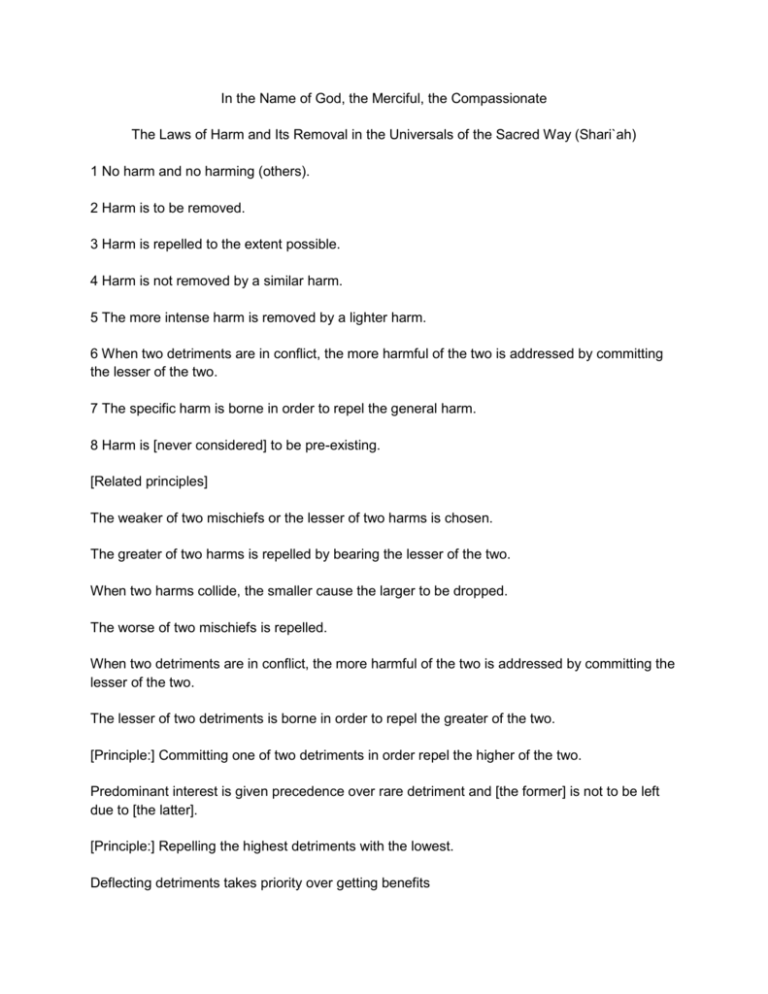
In the Name of God, the Merciful, the Compassionate The Laws of Harm and Its Removal in the Universals of the Sacred Way (Shari`ah) 1 No harm and no harming (others). 2 Harm is to be removed. 3 Harm is repelled to the extent possible. 4 Harm is not removed by a similar harm. 5 The more intense harm is removed by a lighter harm. 6 When two detriments are in conflict, the more harmful of the two is addressed by committing the lesser of the two. 7 The specific harm is borne in order to repel the general harm. 8 Harm is [never considered] to be pre-existing. [Related principles] The weaker of two mischiefs or the lesser of two harms is chosen. The greater of two harms is repelled by bearing the lesser of the two. When two harms collide, the smaller cause the larger to be dropped. The worse of two mischiefs is repelled. When two detriments are in conflict, the more harmful of the two is addressed by committing the lesser of the two. The lesser of two detriments is borne in order to repel the greater of the two. [Principle:] Committing one of two detriments in order repel the higher of the two. Predominant interest is given precedence over rare detriment and [the former] is not to be left due to [the latter]. [Principle:] Repelling the highest detriments with the lowest. Deflecting detriments takes priority over getting benefits Deflecting detriments takes precedence over getting benefits. The Sacred Law’s concern for deflecting detriments is greater than its concern for getting benefits. When something that prevents and something that requires are in conflict, the former is given precedence. Difficulty begets ease. Safeguarding aims always takes precedence over safeguarding means. When interest and detriment are in conflict, the preponderant of the two is given precedence. The Legislator takes interests and detriments into consideration: when they collide, preponderant interest is given precedence over outweighed detriment. When two detriments are in conflict, the more harmful of the two is addressed by committing the lesser of the two. When two offensive matters, two prohibited matters or two harms confront each other, such that there is no escaping them both, committing the lesser of the two is obligatory. The lesser of two detriments is borne in order to repel the greater of the two. [Principle:] Committing one of two detriments in order repel the higher of the two. Predominant interest is given precedence over rare detriment and [the former] is not to be left due to [the latter]. [Principle:] Repelling the highest detriments with the lowest. That which is impermissible because of the 'blocking the means,' becomes permissible because of preponderant interest. Prohibition, when because of [the principle of] 'blocking the means,' becomes permissible because of preponderant interest. That which is prohibited because of [the principle of considering] 'the means,' is done because of preponderant interest. That which is prohibited because of [the principle of] 'blocking the means,' becomes permissible because of preponderant interest. Exigency does not void the rights of others.

